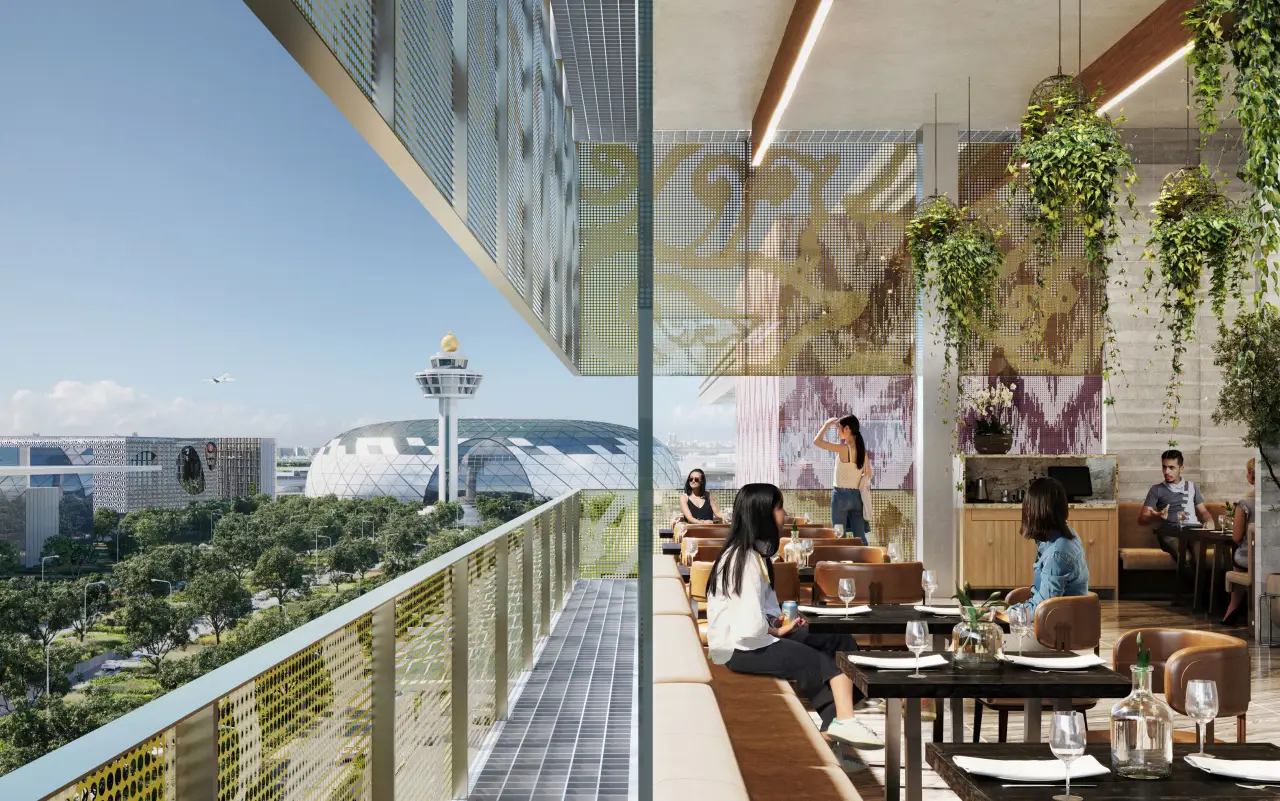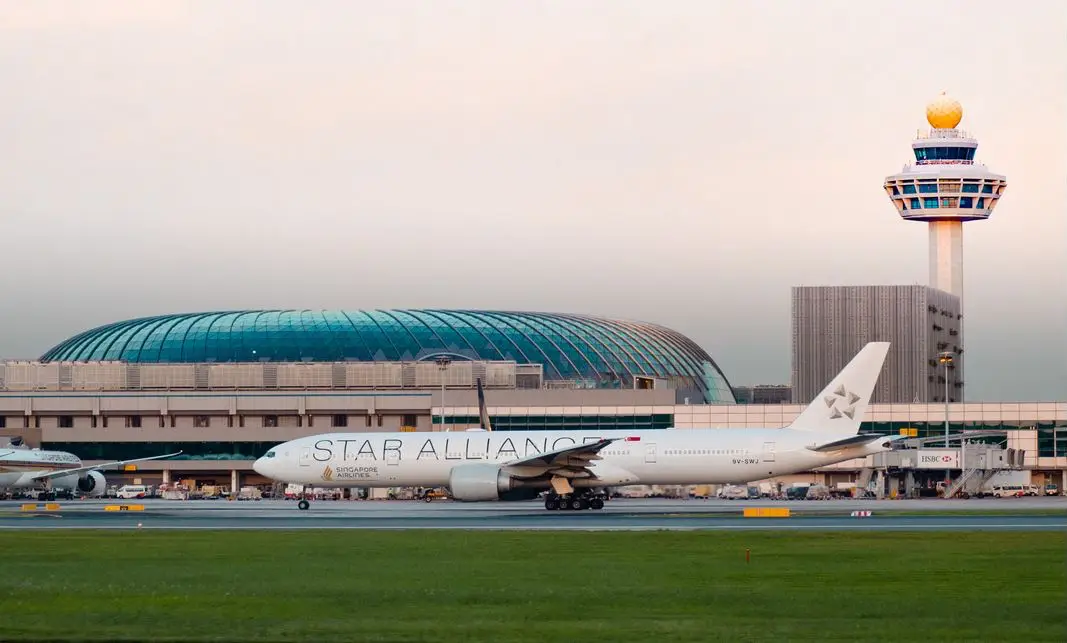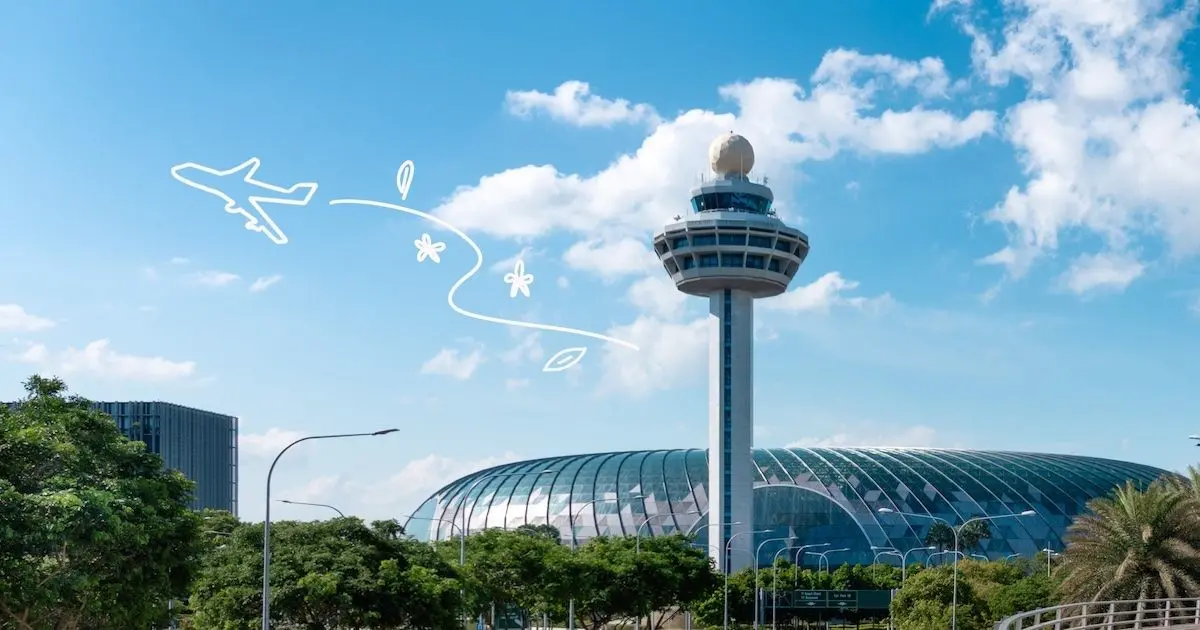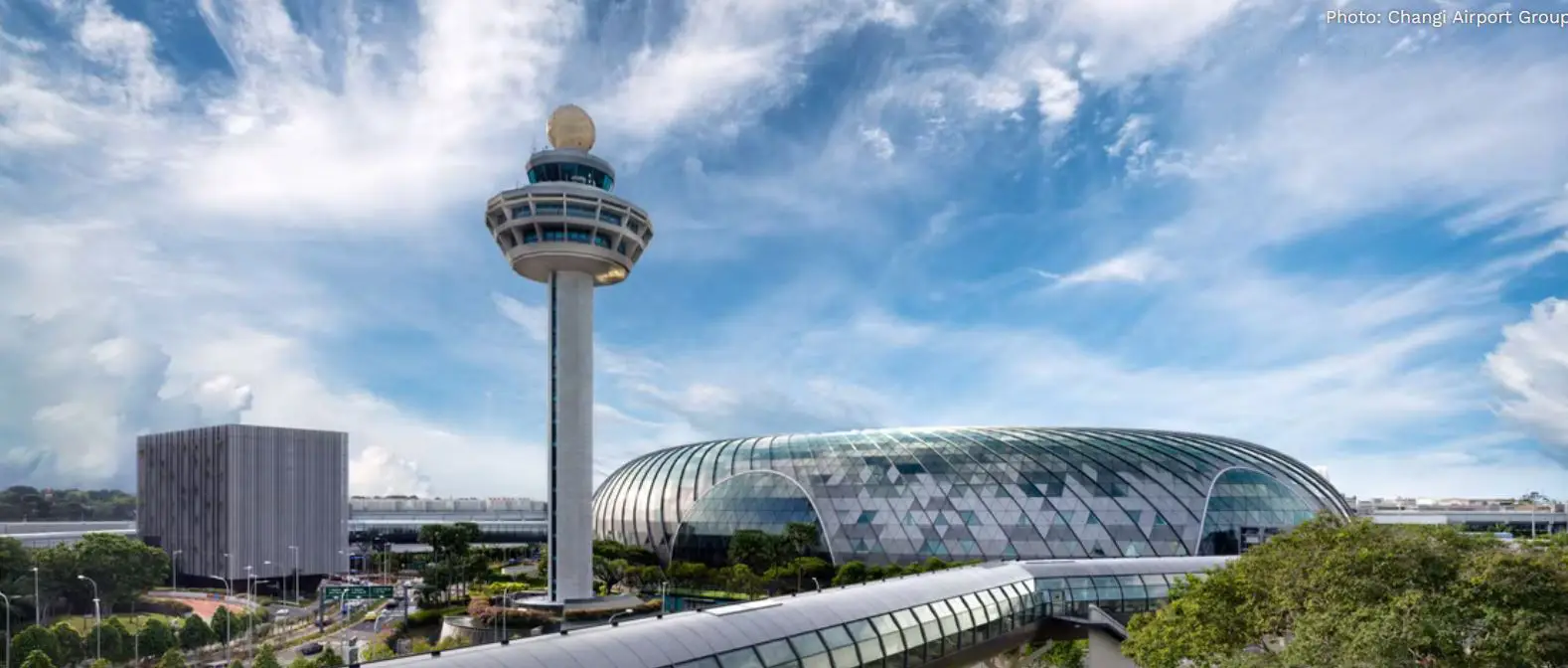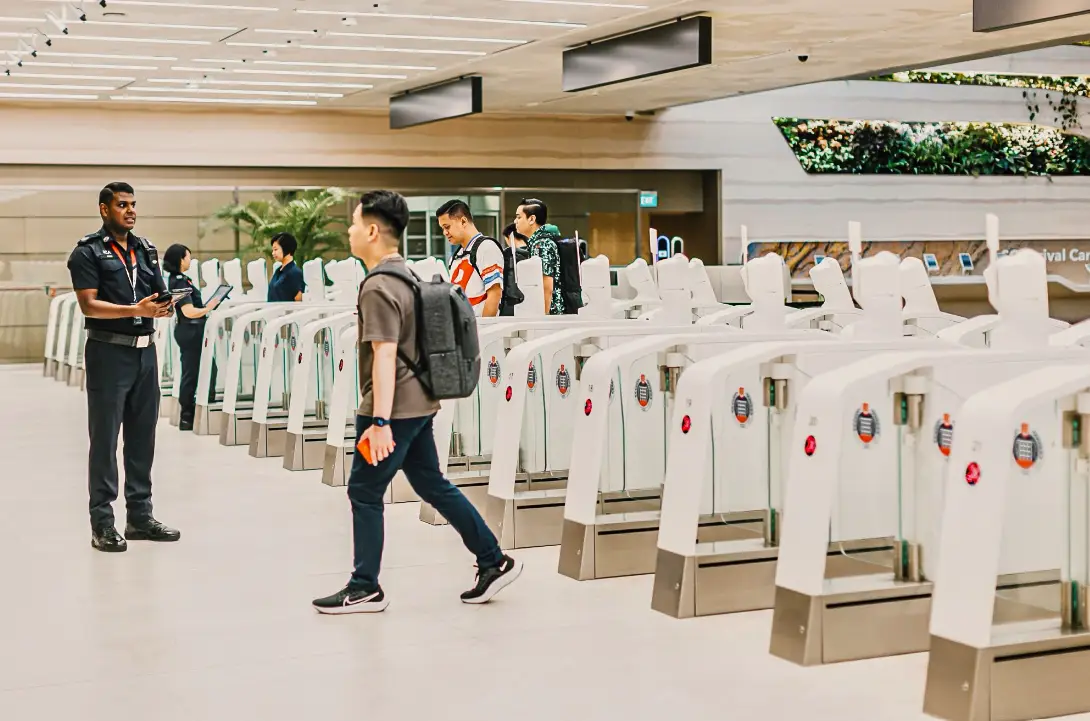Changi Airport Group (CAG) and property developer OUE Limited (OUE) have announced that OUE has been awarded the tender by CAG for the lease and development of a new hotel which will be located at Changi Airport Terminal 2 (T2). The new hotel, Hotel Indigo Changi Airport, is expected to be completed and fully operational by 2028.
Mr Lee Seow Hiang, Chief Executive Officer of CAG said, “The hotel concept proposed by OUE was the most compelling and promises to be the first zero-energy hotel in Singapore, and possibly the first for an airport hotel in the world. With travel demand continuing to soar and passenger traffic growing beyond pre-Covid levels, the new hotel will elevate the hospitality offerings at Changi Airport.”
The 255-room, 163-metre-long hotel will feature innovative design elements and modern facilities, including a rooftop day club, bar and infinity pool offering panoramic views of the runway, airport boulevard and skyline. With layers of lush rainforest and hanging epiphytes stretching over seven storeys, its design will be centred around the concept of a “Floating Forest”.
The new hotel will be the third landside hotel at the airport and will complement the existing hotels YOTELAIR at Jewel Changi Airport and the award-winning Crowne Plaza Changi Airport located at Terminal 3, which is also owned and leased by OUE Group. OUE Limited is a Singapore-based real estate development, investment and management company.
With sustainability as a core component, Hotel Indigo Changi Airport aims to achieve operational energy neutrality by combining energy-efficient design with low-energy operations while maximising on-site solar energy generation. Its sustainability features such as solar photovoltaic panels, hybrid cooling systems, naturally ventilated corridors and rainwater-harvesting technology are aimed at reducing environmental impact while enhancing overall guest comfort and well-being.
The tourism sector in Singapore has seen a rebound from pandemic levels and is expected to continue to attract visitors as the country remains a key destination for leisure and MICE. In 2023, Singapore visitor arrivals surged 115% to 13.6 million from 6.3 million the year before with tourism receipts estimated to be between S$24.5 billion and S$26.0 billion. The strong tourism recovery is expected to continue, with both international visitor arrivals and tourism receipts to climb further in 2024, according to the Singapore Tourism Board.
Between January and March 2024, 16.5 million passengers passed through Changi Airport, surpassing pre-pandemic levels on a quarterly basis for the first time.
Looking ahead, passenger traffic in South-east Asia is expected to increase by about 9.5 per cent a year over the next two decades, making the region one of the fastest growing in the world, according to aircraft maker Boeing’s estimates.
The Straits Times reported that over on Changi Airport’s airside – the part of the airport beyond passport control – there also appears to be plans to remodel the transit hotels at T1, T2 and T3 to cater to this growth. Tender documents show that the airport operator intends to study the feasibility of reconfiguring and expanding the three airside hotels – Aerotel Singapore at T1, which has 70 rooms and an outdoor swimming pool, and Ambassador Transit hotels at T2 and T3, which have 83 and 66 rooms, respectively.


